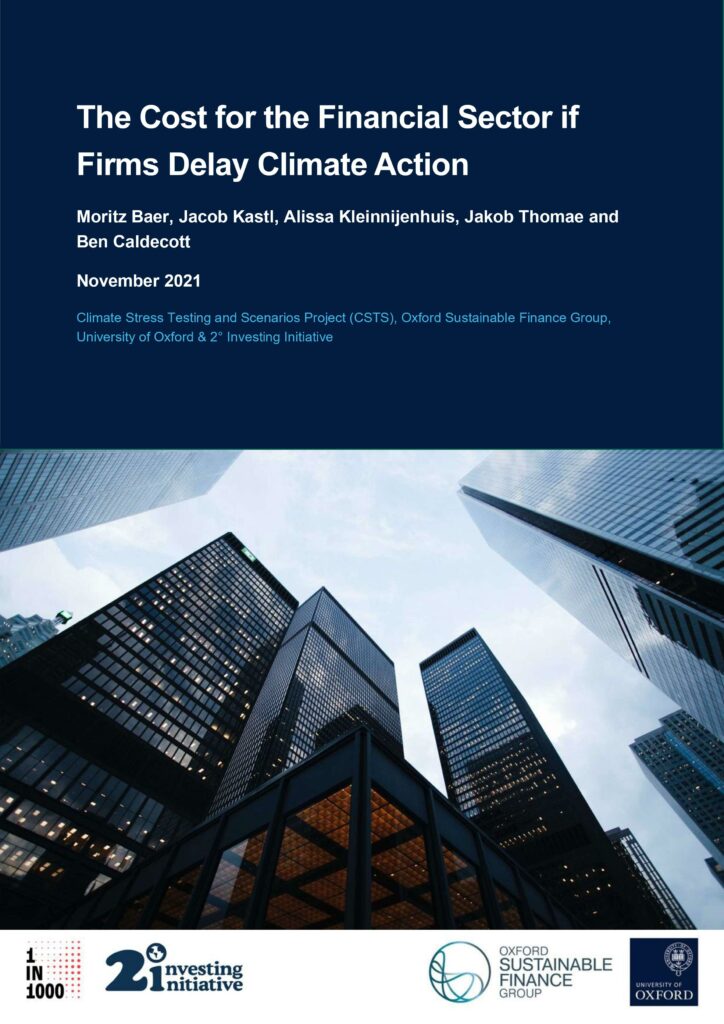In this report, we estimate the additional costs for the financial sector when climate action by companies is delayed. To do this, we model the impact on the equity value and the probability of default for publicly listed companies in polluting sectors resulting from climate related transition risks that create financial losses.
To undertake this analysis, we have developed an exploratory bottom up asset level climate stress testing framework that translates climate related transition shocks affecting individual firms to the shocks affecting the value of financial assets. Using asset level data we capture the transition impact on the profitability of publicly listed companies in four of the most climate critical sectors globally power generation, oil gas, coal production and the automotive industry. We find that analysed firms are insufficiently aligned with the net zero transition, highlighting that even in a scenario where climate action is taken by these companies as early as 2026 the cost to the financial sector is estimated to be US$ 2.2 trillion in total.
We find that this financial cost increases by an additional US$ 150 billion for each year climate action by these companies is further delayed.
More about the Climate Stress Testing and Scenarios Project (CSTS)
The Climate Stress Testing and Scenarios Project (CSTS) sits within the Oxford Sustainable Finance Group at the University of Oxford and is a joint project with the 2° Investing Initiative. CSTS is developing state-of-the-art analytical approaches around climate scenarios and stress testing to allow for a transparent, asset-level based assessment of the impact of climate and other long-term environmental risks on the soundness and stability of the financial system. To find out more about the CSTS, contact Moritz Baer.
About our funders: This report has received funding from the European Union’s Life programme under LIFE Action grant No. LIFE19 GIC/DE/001294, and from the European Union’s Life NGO program under Grant No LIFE20 NGO/SGA/DE/200040. This work reflects only the authors’ view and the funders are not responsible for any use that may be made of the information it contains.



